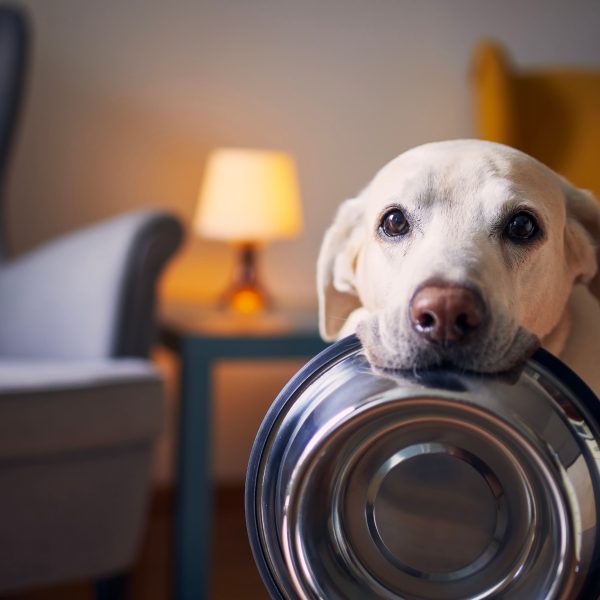Should You Feed Your Dog a Raw Diet?

You might have heard some buzz surrounding a raw diet for your dog. These diets are offered as an alternative to traditional dog food, but they’re not for every dog. Just like any dog food diet, there are pros and cons. So, should you feed your dog a raw diet? Here’s what you should know:
What is a Raw Diet?
A raw diet does not consist of any cooked food items. Raw food diets often consist of raw meat on the bone, fruits, vegetables, grains, eggs, and organ meats. Dairy may even be added, depending on the recipe.
Due to the food’s raw form, they do not come canned or in a form of kibble. However, there are some freeze-dried or frozen options available for owners who desire convenience. You can also make it home following online recipes or recipes from your vet.
Why Do People Feed Their Dogs Raw Diets?
Traditional dog food can be a well-balanced nutritional meal for dogs. It’s affordable with plenty of options. If you’re wondering how to choose the best dog food, ask your vet for advice. They’ll be able to provide some recommendations specific to what your dog needs so you know what to look for when you check the labels.
However, some people prefer to feed their dogs raw diets. They may want to feed their dog a more “natural” diet or are concerned with mass food production practices. Some may also believe that because dogs’ ancestors ate raw diets in the wild, domesticated dogs should eat the same way.
Some dogs might have allergies to certain ingredients in canned or kibble dog food. Because of this, a home-prepared diet allows the owner to know exactly what their dog is eating. Sometimes, these owners opt for a raw diet.
Before starting any dog on a new diet, consulting a vet is highly recommended. This ensures the dog is getting the right nutrients needed.
Should You Feed Your Dog a Raw Diet?
While theoretically, dogs can eat raw meat, it doesn’t necessarily mean they should. Those who advocate raw food diets cite dogs having healthier skin and fur, more energy, and better dental health. However, there are some caveats to a raw diet.
Cross-Contamination is a Big Concern With Raw Diets
Some veterinarians advise that raw diets are not suitable for dogs in homes with children or anyone who is immunocompromised. Preparing a raw diet requires close attention to detail to avoid cross-contamination as well as proper storage, preparation, and serving.
Improper storage and preparation practices may lead to your dog picking up a parasite or certain bacteria. It’s important to properly store your dog’s food, no matter what type it is, and this is even more important for a raw diet.
Certain Health Concerns Can Make Raw Diets a Bad Fit
Raw diets are also not recommended for puppies or dogs that have pancreatitis, cancer, or other health concerns. Raw food may sometimes contain bones which can be a choking hazard and may damage teeth.
Homemade Dog Food Doesn’t Have to Be Raw
If a raw diet isn’t necessarily right for your dog and you like the idea of making food at home for your dog, especially if they need to avoid a specific ingredient or two, there are some options. There are many homemade dog food recipes available to try provided they are cleared by your vet first. This allows you to control exactly what you’re feeding your dog, which helps avoid allergies or sensitivities.
Opt for recipes with cooked meat along with some of the best fruits and veggies for dogs. Cooking the meat as well as other ingredients helps eliminate bacteria and makes food easier to chew. Adding veggies, fruits, and grains helps balance the rest of your dog’s diet. It’s still important to follow food-safe regulations when making homemade dog food.
Make Sure You Talk to Your Vet First
Be sure to talk to your vet before trying any new diets. For the majority of dogs, the right pre-made commercial dog food is the better option. It’s been formulated by nutritionists and it’s much more convenient. The right kind of food is a cost of owning a dog to keep in mind and it’s important to make sure what you’re feeding your dog is supporting their overall health.
Hopefully, this answers the question “Should you feed your dog a raw diet?” No matter what diet you choose for your dog, be sure it’s properly balanced. Dogs need more than just meat. If you want more help in your decision-making, ask your vet if they know a veterinarian nutritionist. These experts can advise you in picking the right diet for your dog and your lifestyle.
